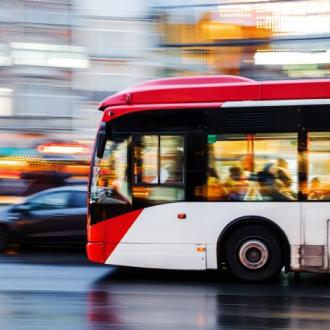Climate change - what’s it all about?

Climate change is a hard topic to talk about, but knowing the facts about climate change and getting to grips with some of the jargon can help give you the confidence you need to start having these essential conversations. In this guide we explain terms such as ‘climate emergency’, ‘net zero’, ‘just transition’ and ‘COP’ so you can talk about these with confidence to your friends, family and colleagues.
The facts

Progress already being made
- Scotland was one of the first countries in the world to declare a climate emergency and in the last 30 years we've halved our greenhouse gas emissions. As part of our ongoing commitment to protect people and our planet, we've set an ambitious target to reach net zero emissions by 2045.
-
The equivalent of almost 100% of Scotland’s gross electricity consumption is generated from renewable sources.
-
In less than 10 years, we have funded the restoration of around 30,000 hectares of peatland, and in the last 3 years, created over 32,000 hectares of new woodland – an area almost double the size of Glasgow.
-
Since 2009 we have allocated more than £1bn to tackling fuel poverty and improving energy efficiency.
-
Scotland is at the forefront of tackling biodiversity loss – leading the Edinburgh Process to ensure a ‘whole of government’ approach is adopted globally, while committing to protect 30% of our land for nature by 2030, and to highly protect 10%.
-
Our Infrastructure Investment Plan includes almost £9bn for environmental sustainability and the transition to net zero. This includes a £2bn cross-Government investments priority for a Low Carbon Fund - demonstrating our commitment to a green recovery.
-
Our 5-year Hydrogen Action Plan, published in November 2021, sets out the steps we must take over the next five years to achieve our ambition of 5GW of hydrogen production capacity by 2030.
-
We are making offshore wind central to our climate change targets with the goal of increasing our capacity up to 11 gigawatts by 2030 – enough to power 8 million homes.
-
NHS Scotland has cut emissions from its buildings by 64% since 1990 and aims for net zero by 2040 along with Scottish Water and Scotland’s colleges.
-
The Scottish National Investment Bank has committed nearly £200m to date. Around £110m helps in our just transition to net zero: creating new woodlands, scaling-up production of natural fibre insulation, enabling production of tidal turbines and rolling out new charging points for electric vehicles.
Find out more about how Scotland's Taking Action.




